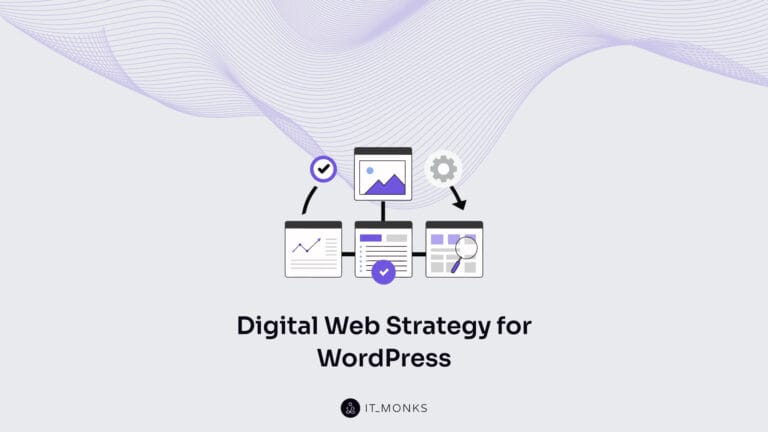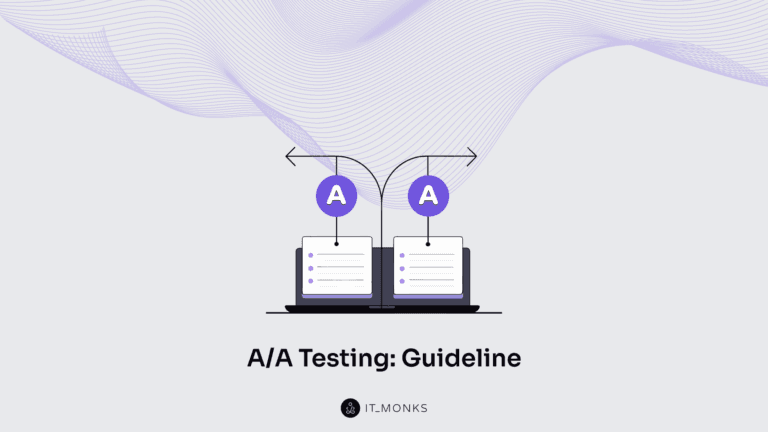Advantages and Disadvantages of Ecommerce: Complete Guide
Table of Contents

Ecommerce has become a crucial component of business success in the digital age. As more consumers embrace online shopping, businesses have had to adapt, transforming their traditional operations to meet the demands of this growing market. This shift has opened up numerous opportunities, allowing businesses to reach new audiences, reduce operational costs, and operate around the clock. However, it has also introduced challenges, such as increased competition, security concerns, and the need for continuous technological innovation. Understanding the advantages and disadvantages of ecommerce is essential for both businesses and consumers.
For businesses, understanding the pros and cons of ecommerce informs decisions about how to leverage online platforms best to enhance their products online and improve customer satisfaction. For consumers, it can help in making informed choices about where and how to shop online. By thoroughly understanding the dynamics of ecommerce, businesses can harness its benefits to drive success while mitigating its risks.
Pros of Ecommerce

According to the 2024 eCommerce Size & Sales Forecast, the global ecommerce market is expected to reach $4.2 trillion in 2024 and continue growing. There are multiple ecommerce benefits that can significantly enhance a business’s performance and customer experience. Below, we delve deeper into the key pros of ecommerce.
Global Reach
One of the most compelling advantages of ecommerce is its ability to extend a business’s reach to a global audience. According to Statista, retail ecommerce sales are estimated to exceed $6.3 trillion worldwide in 2024. Unlike traditional physical stores, which are limited by geographical location, online businesses break down these barriers, allowing them to connect with customers worldwide. This global reach expands market potential, enabling businesses to tap into diverse markets and cater to a broader customer base by selling their services and products online.
For example, a small business based in a rural town can sell products to customers across the globe, something that would be nearly impossible without an online presence and running a physical storefront only. This expansion can lead to greater revenue opportunities and a stronger brand presence internationally. By reaching customers beyond local borders, businesses can grow their brand’s influence, adapt to global market trends, and increase their overall market share.
Moreover, the ability to operate across different time zones means that businesses can cater to international customers without the need for physical storefronts in each location. This capability not only increases sales opportunities but also helps businesses establish a global presence without incurring the costs associated with traditional expansion methods. Whenever you decide to target users in a specific region, geolocation WordPress tools will help you manage this job perfectly well.
Lower Operational Costs
Operating an online store generally costs less than maintaining a physical storefront. The absence of a need for a physical location allows businesses to save on expenses related to rent, utilities, and other overhead costs. This reduction in operational expenses frees up resources that can be reallocated to other critical areas, such as marketing, product development, and customer service.
For instance, an ecommerce business can invest in digital marketing campaigns to reach more customers instead of spending money on maintaining multiple physical stores. Additionally, ecommerce platforms often provide cost-effective tools and services that streamline operations, such as inventory management systems, automated marketing solutions, and the best CTM for WooCommerce or other platforms. These tools not only reduce the manual effort required to run a business but also contribute to overall cost savings.
Furthermore, the scalability of ecommerce allows businesses to grow without significant increases in operational costs. Unlike a physical storefront, which requires more space, staff, and inventory as it expands, online stores can increase their capacity with minimal additional expenses. This scalability is particularly beneficial for startups and small businesses looking to grow rapidly without the financial burden of expanding physical infrastructure.
24/7 Availability
Ecommerce platforms enable businesses to operate around the clock, offering unparalleled convenience to customers. Unlike traditional storefronts with fixed hours, online stores are accessible 24/7, allowing customers to shop anytime that suits them. This constant availability not only increases customers’ convenience but also maximizes business sales opportunities.
By providing a seamless shopping experience at all hours, businesses can enhance customer satisfaction and drive continuous revenue growth. For example, a customer who decides to buy products online late at night can do so without waiting for the store to open the next day. This flexibility caters to the diverse schedules of customers, including those in different time zones, and contributes to a more inclusive shopping experience.
Moreover, the 24/7 availability of online stores allows businesses to capture sales from spontaneous purchases that might not occur if customers had to wait for a physical store to open. This immediacy can lead to higher conversion rates, as customers are more likely to complete a purchase when the buying process is quick and convenient.
Customer Insights and Analytics
Ecommerce platforms provide valuable data and analytics that help businesses understand customers’ behavior and preferences. By analyzing browsing patterns, purchase history, and other data, businesses can gain insights into what drives customers’ decisions to buy products online and tailor their strategies accordingly.
Leveraging data for informed decision-making allows businesses to optimize their marketing efforts, improve product offerings, and enhance the overall customer experience. For example, by tracking which products are frequently viewed but rarely purchased, a business can identify potential issues, such as pricing or product descriptions, and make necessary adjustments.
Furthermore, Google Analytics for WordPress and other platforms can help businesses personalize each customer’s shopping experience, increasing the likelihood of repeat purchases. By understanding customer preferences, businesses can create targeted marketing campaigns, recommend products that align with individual tastes, and offer promotions that resonate with specific customer segments.
Personalization and Targeting
Online stores can utilize data to create personalized shopping experiences for customers. Ecommerce platforms enable businesses to target specific customer segments with relevant offers and recommendations based on past behavior and preferences. This level of personalization enhances the shopping experience and can lead to increased conversion rates and customer loyalty.
For instance, a customer who frequently purchases skincare products might receive personalized recommendations for new or complementary items in the same category. This tailored approach not only makes the shopping experience more enjoyable but also increases the likelihood of additional purchases.
Moreover, personalization extends beyond product recommendations. Businesses can customize the entire shopping experience, from the homepage layout to the email marketing content, to align with the preferences of different customer segments. This level of targeting helps businesses build stronger relationships with their customers and fosters brand loyalty.
Scalability
Ecommerce allows businesses to scale their operations more easily than traditional brick-and-mortar stores. As demand grows, businesses can expand their online presence without additional physical locations. This scalability is particularly beneficial for businesses looking to grow rapidly and adapt to changing market conditions.
For example, an online retailer experiencing a surge in demand during the holiday season can quickly increase inventory levels, add more products to their catalog, and ramp up marketing efforts without the constraints of physical space. This flexibility enables businesses to respond to market trends and customer needs more effectively.
Additionally, ecommerce platforms often offer scalable solutions that grow with the business. Whether it’s upgrading to a more robust hosting plan, integrating new payment gateways, or expanding to international markets, businesses can scale their ecommerce operations without significant disruptions.
Diverse Payment Options
Ecommerce platforms support various payment methods, making it easier for customers to complete transactions. From credit and debit cards to digital wallets and alternative payment methods, businesses can offer multiple options to accommodate customer preferences.
Providing a range of payment methods enhances the shopping experience and reduces barriers to purchase, potentially increasing conversion rates. For example, a customer who prefers using a digital wallet may be more likely to complete a purchase if their preferred WooCommerce payment method is available.
Moreover, offering diverse payment options can help businesses cater to international customers who may have different payment preferences. This inclusivity can lead to increased sales and a more positive customer experience, as customers are more likely to shop with a business that offers convenient payment methods.
Cons of Ecommerce

While the list of ecommerce advantages could be further expanded with more points, we should also introduce you to several ecommerce disadvantages that can impact business operations and customer experience.
Security Concerns
Online transactions inherently carry security risks, such as fraud and data breaches. Protecting sensitive customer information, including payment details and personal data, is crucial for ecommerce businesses.
Cyber threats like hacking and phishing attacks can jeopardize customer trust and lead to significant financial losses. To mitigate these risks, businesses must implement robust security measures, including encryption, secure payment gateways, and regular security audits. Staying updated with the latest security protocols is essential to safeguarding the business and its customers.
Lack of Personal Touch
Ecommerce lacks the face-to-face interaction that physical stores provide when selling products or services. The absence of personal interaction can affect customer relationships and brand loyalty.
Buying products at traditional stores, customers can ask questions, receive immediate feedback, and experience a tangible connection with the brand. Online shopping, on the other hand, relies heavily on virtual interactions, which can sometimes feel impersonal. Businesses can address this by offering excellent customer service, using chatbots for instant support, and providing detailed product descriptions and reviews to enhance the shopping experience.
Technical Challenges
Setting up and maintaining an ecommerce website can involve significant technical challenges. Site downtime, slow loading times, and payment gateway failures can disrupt operations and negatively impact user experience.
For instance, a website that experiences frequent downtime may lose customers who are unable to complete their purchases. Similarly, slow loading times can frustrate customers and lead to higher bounce rates, reducing the effectiveness of marketing efforts.
To ensure a seamless online experience, businesses must invest in reliable technology infrastructure, regular maintenance, and technical support. This includes using high-performance hosting services, optimizing website speed, and regularly updating software and plugins to prevent vulnerabilities.
Moreover, businesses should have a contingency plan in place to address technical issues quickly. This might involve having a dedicated IT team or partnering with a third-party provider to ensure that any disruptions are resolved swiftly, minimizing the impact on customers and sales.
Shipping and Logistics Issues
Shipping and logistics are among the most complex and costly aspects of running an ecommerce business. Effective management of shipping processes is crucial for maintaining customer satisfaction and ensuring a seamless shopping experience. From managing shipping costs to handling returns and ensuring timely delivery, every step of the shipping process can significantly impact customer perceptions and overall business success.
One of the primary challenges businesses face is controlling shipping costs, which can quickly escalate depending on factors such as distance, package size, and shipping speed. These costs must be carefully managed to avoid eroding profit margins while still offering competitive shipping rates to customers. Offering free or discounted shipping can be an effective way to attract customers, but it requires businesses to absorb or offset these costs elsewhere.
Another critical aspect is managing international shipping, which introduces additional layers of complexity. International shipping involves navigating customs duties, taxes, and varying regulations across different countries. Businesses must ensure that their shipping practices comply with these regulations to avoid delays and penalties. Furthermore, providing accurate shipping estimates and delivery timelines is essential for maintaining customer trust, particularly when dealing with cross-border transactions.
To tackle these shipping challenges, businesses must develop efficient logistics strategies that optimize every step of the shipping process. This includes choosing the right shipping partners, utilizing technology to streamline operations, and continuously monitoring shipping performance. Partnering with reliable carriers is crucial to ensure that shipments are delivered on time and in good condition, which is vital for maintaining a positive brand image.
Intense Competition
The ecommerce landscape is highly competitive, with numerous businesses vying for consumer attention. Standing out in a crowded market can be challenging, especially for new entrants. Competing with established players requires effective marketing strategies, a unique value proposition, and a strong online presence. Businesses must continuously innovate and differentiate themselves to capture market share and attract customers.
Dependence on Technology
The online marketplace is highly competitive, with businesses competing not only with local competitors but also with international players. This intense competition can make it challenging for businesses to stand out and attract customers.
For example, a small business selling handmade jewelry online may find it difficult to compete with larger, established brands that offer similar products at lower prices. Additionally, the ease of comparing prices online means that customers can quickly switch to a competitor if they find a better deal.
To succeed in this competitive environment, businesses need to differentiate themselves through unique value propositions, superior customer service, and effective marketing strategies. This might involve offering exclusive products, creating compelling brand stories, or using social media to build a loyal customer base.
Moreover, businesses should focus on building a strong online presence through search engine optimization (SEO), content marketing, and social media engagement. By increasing their visibility and establishing a distinct brand identity, businesses can attract and retain customers in a crowded marketplace.
Customer Trust and Credibility
Building trust with customers who cannot physically see or try products before purchasing can be challenging. Unlike physical stores where customers can inspect products firsthand, ecommerce relies on virtual interactions, which may affect credibility.
Businesses can enhance trust by providing detailed products information, showcasing customer reviews, and offering clear return policies. Building a reputable online presence and delivering excellent customer service is crucial for establishing credibility and fostering customer loyalty.
Conclusion
Ecommerce presents a range of advantages, including global reach, lower operational costs, and 24/7 availability. However, it also comes with ecommerce disadvantages such as security concerns, lack of personal touch, and intense competition. By understanding both advantages and disadvantages of ecommerce, businesses can develop strategies to leverage ecommerce benefits while addressing its drawbacks.
Whether you’re a business owner looking to establish an online presence or a customer exploring online shopping options, understanding the dynamics and differentiating the major pros and cons of ecommerce is essential in today’s digital age. Instead of investing your valuable time and resources in tasks you’ve never tried before, it’s wiser to rely on the professional expertise of the IT Monks team. We are specialists in all things related to ecommerce and web development. Contact us to discuss your needs, and we’ll provide you with the best solution!
Contact
Don't like forms?
Shoot us an email at [email protected]




